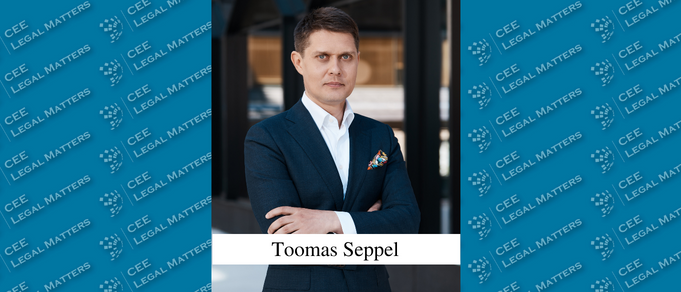Estonia’s present and future are linked to information technology, blockchain, and different technology-currency relations, with new regulations on the horizon, according to Hedman Law Firm Partner Toomas Seppel.
"Estonia has been a very active market with changes in cryptocurrency regulations on average, and twice this year," Seppel says. "We were one of the first countries to introduce cryptocurrency laws in 2017. The main reason for it was that there used to be more than 1,500 cryptocurrency companies – the market was overcrowded, and the regulators could not keep up anymore, so they had to change the law. It is now a difficult environment with only the strongest surviving."
Seppel highlights that different scandals in cryptocurrencies and the "Crypto Winter" have affected the market, and the virtual currency rates are going down. "We are optimistic about the new European Union cryptocurrency regulations coming, called the MiCA. We might be the first country to introduce the MiCA and prepare for those changes," he notes. Still, Seppel says that "there is an active crypto services market, but the companies are more mature. It is harder to join the market in terms of resources, procedures, and compliance. It used to be much easier, but now you need a well-capitalized company to cope with rapid updates and changes." According to Seppel, it is still a hot topic in Estonia: "we are trying to keep Estonia as the best place to do business in terms of regulations, ecosystem, technology, investments, and everything else. New products and services are being developed and are ready to go on the market now and after the MiCA."
Other than that, Seppel says that Estonia is also preparing for the EU regulations for technology companies on artificial intelligence and data portability. "It is an interesting time for technology companies working with artificial intelligence and big data," he notes. "Interesting times are ahead, with the possibilities for small EU players to go to the market being improved, as opposed to now, when big foreign technology players are calling the shots."
"2022 was an active year, despite being affected by the crises," Seppel adds. "The prognosis is less optimistic for the coming year. It is more difficult to raise money, but it is still possible with an active venture capital market and investors. However, companies have to prove that they have a strong team and a good product with the possibility to scale up the business. Investors are asking more questions, and you have to have those answers ready."
Seppel adds that still, in Estonia, there is reason to be optimistic. "Transactions might take longer, but we still have an active market," he says. "Moreover, the COVID-19 pandemic showed that if something is happening in economy and society, technology companies are fast to adapt and provide new services. Technology companies and start-ups are still ready to rise to the challenge – they are problem solvers." Therefore, Seppel says, "even in bad times and challenges, such as the energy crisis and layoffs, there is hope that technology companies will come up with sustainable solutions."






















